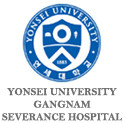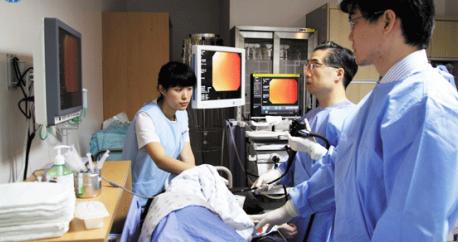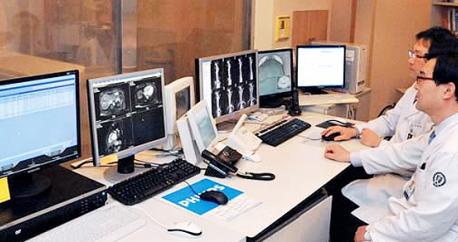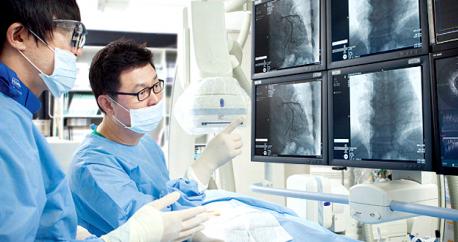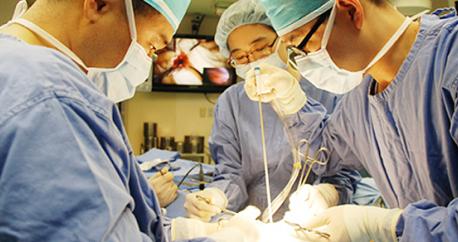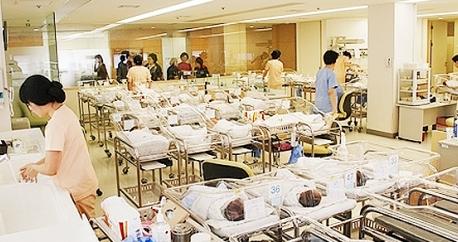Gynecologic cancer refers to cancer that occurs in female reproductive system and in a broad sense, includes breast cancer but it refers usually to the cancer of reproductive system such as the uterus, ovaries, vagina, vulva.
Cervical cancer
This is the most common cancer and the cancer of female reproductive system cancer occurred in the cervical, the entrance of uterans. Cervical cancer is not occurred in a singday and is known as passing a considerable period in situ cancer.
Causes of Cervical Cancer
- HPV infection
- Smoking
- HIV Infection
- Cla media infection
- Low dietary intake of fruits and vegetables
- Long-term use of oral contraceptives
- Multiparity
- Low socio economic level
Symptoms of Cervical Cancer
- Vaginal bleeding
- Increased vaginal discharge
- Pelvic pain, back pain
- Weight Loss
- Dysuria
- Hematuria
Diagnosis of Cervical Cancer
- Internal examination
- Cervical smear
- Biopsy
- Colposcopy
- Conization
- cystourethroscopy
- sigmoidoscopy
- Intravenous pyelography
- Blood tumor marker tests
- Diagnostic imaging tests CT, MRI, PET
Treatment of Cervical Cancer
- Radiation therapy
- Chemotherapy
- Topical destructive therapy (freezing therapy, frequency therapy, laser therapy)
- Surgery (conization, simple hysterectomy and radical hysterectomy)
Endometrial Cancer
It refers to cancer occurred in the uterine lining consisting of the linigng of cancer uterine corpus occurred in the uterine lining consisting of the lining of the uterine corpus and occupy the majority of uterine corpus cancer. endometrial cancers occur in the lining of the uterine body occurring in endometrial cancer refers to the configuration, make up the majority of cancer of uterine corpus.
Causes of Endometrial Cancer
- Hormonal factors
- Obesity
- Non-procreative or low fertility
- Family history and genetic predisposition
- Spontaneous menopause Anovulation
- Diabetes
- Immunodeficiency diseases
- Past disease history
Symptoms of Endometrial Cancer
- Irregular uterine bleeding (menopause or after intercourse)
- Excessive menstration volume
- Stinking vaginal discharge
- The yellow light vaginal pH
- Pressures of abdomen, pelvis, back and legs
- Vagina (pubic) discomfort around
- Hematuria, urinary frequency
- Abdominal distention, ascites
- Weight Loss
- Mental weakness and anemia
Diagnosis of Endometrial Cancer
- Internal examination
- Transvaginal ultrasound
- Biopsy
- Jet thorax
- Fractional curettage
- Hysteroscopy
- Intravenous pyelography
- Proctoscopy
- Blood tumor marker check
- Diagnostic imaging Tests X-ray, CT, MRI, PE
Treatment of Endometrial Cancer
- Radiation Therapy
- Chemotherapy
- Hormone Therapy
- Surgery (hysterectomy and ovarian / tubal surgery)
Ovarian cancer
It refers to ovarian cancer playing an imortant role for female reproductive and hormones and it can be divided into epithelial ovarian cancer and non-epithelial ovarian cancer depending on the tumor origin organe. Dual epithelial ovarian cancer accounts for 90% and non-epithelial ovarian cancer includes germ cell tumors, origin of gonadal tumors and metastatic ovarian cancer and etc.
Causes of Ovarian Cancer
- Family history and genetic factors
- Hormonal factors
- In case that the number of pregnancies is a lot.
- Longer term use of oral contraceptives
- Past diesease history
Symptoms of Ovarian Cancer
- Abdominal distension and pain
- Frequent urination
- Constipation
- Respiratory distress
Diagnosis of Ovarian Cancer
- Internal examination
- Blood tumor marker check
- Vaginal ultrasound
- Dignostic Imaging tests
- Protoscop
- Gastroscopy
- Colonoscopy
- Mammography
Treatment of Ovarian Cancer
- Radiation therapy
- Chemotherapy
- Surgery (hysterectomy, ovaries and tubal surgery)
Types of Gynecologic Cancer Treatment
Radiation Therapy
It is the treatment destructing cancer cells and inhibiting the growth of these cells by using high-energy radiation.
Chemotherapy
It refers to treatment used anti-cancer medicine which destruct cancer cells by stopping growth or proliferation affecting cell growth in cycles to treat cancer cells. 3) Hormone therapy It is the method using oral or injections hormone to block the influence of hormone needed in the growth of cancer cells as a hormone treatment of the patients of endometrial cancer
Topical Fracture Treatment
- ① Freeze therapy : Killing by freezing the abnormal cells of the uterine cervix
- ② High-Frequency Therapy : Killing cancer cells by high temperature using high-frequency
- ③ Laser Therapy : Killing or cutting cancer cells by using a laser beam
Surgical Method
- ① Conization :It is the surgery method cutting with the cone-shape form only the part of invasion of cervix in case that cervical.cancer is invaded with less than 3mm.
- ② Hysterectomy : Degree of cancer progression, namely the surgery is performed considering tumor size, age, whole body condition, and whether the future hope of giving birth and largely classified as follows;
- Partial hysterectomy: Surgery removing only the corpus remaining the cervical
- Total hysterectomy: Surgery removing the whole of cervical and corpus of the uterus
- Radical hysterectomy: Surgery removing all the whole of uterus and both ovaries and tubals, part of vagina, lymph glands around uterus and even ligament. - ③ Ovariotomy and Salpingectomy : Surgical resection of one side or both ovaries and tubals
KMH Recommended Tips
- 1. The rules of life for gynecologic cancer prevention are as follows;
- Receives regular checkups.
- To maintain safer sex.
- No smoking
- No smoking
- HVP vaccination to prevent cervical cancer
- Appropriate diet and exercise because the risk of occurrence is increasing in case of obesity.
- Avoid excessive drinking
- No smoking - 2. Dental care during chemotherapy cannot receive so that you have to receive the dental examination before treatment in advance.
- 3. Consult with medical staff in order to understand coping skills about chemotherapy and postoperative complications.
- 4. If the patient caught a cold during the treatment, immune function is low so that there are risk developing as a serious infection like pneumonia. Therefore, influenza vaccination is recommended even if the period of treatment and the period will be consulted with medical staff.
- 5. Daily life or couple sexual intercourse after gynecologic surgery, unless there are special instructions of your doctor, there is no change as before treatment.
- 6. There might be having a variety of ups and downs in emotion of cancer patients ranging from the stage of cancer diagnosis. You have to know related information in order to get professional help. as needed for the management of emotional change and mental stress
- 7. Examination of body state all the time by visiting hospital regularly and being fully aware note related to treatment in addition to this.
